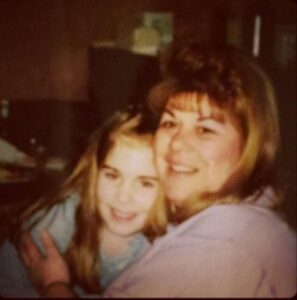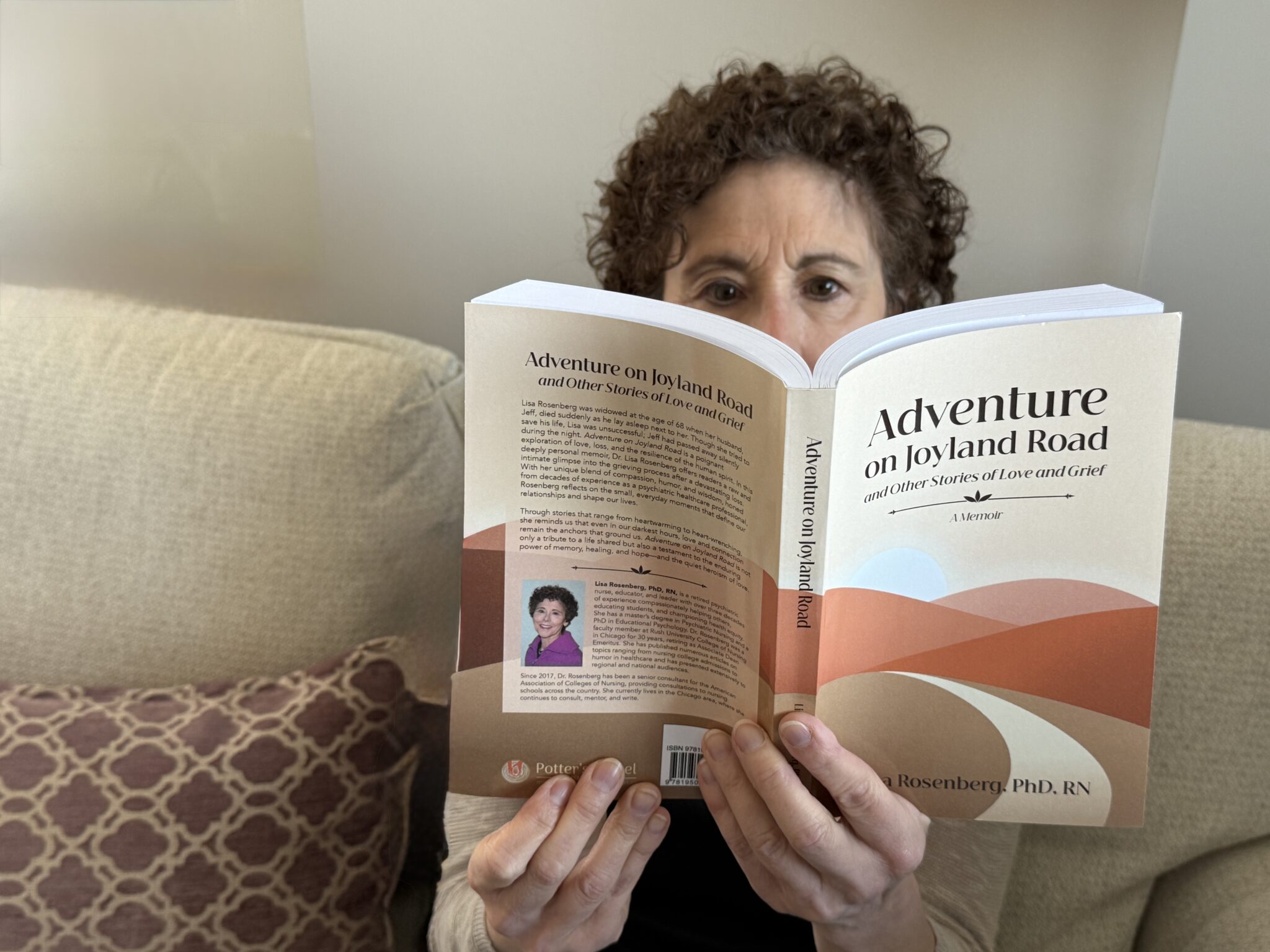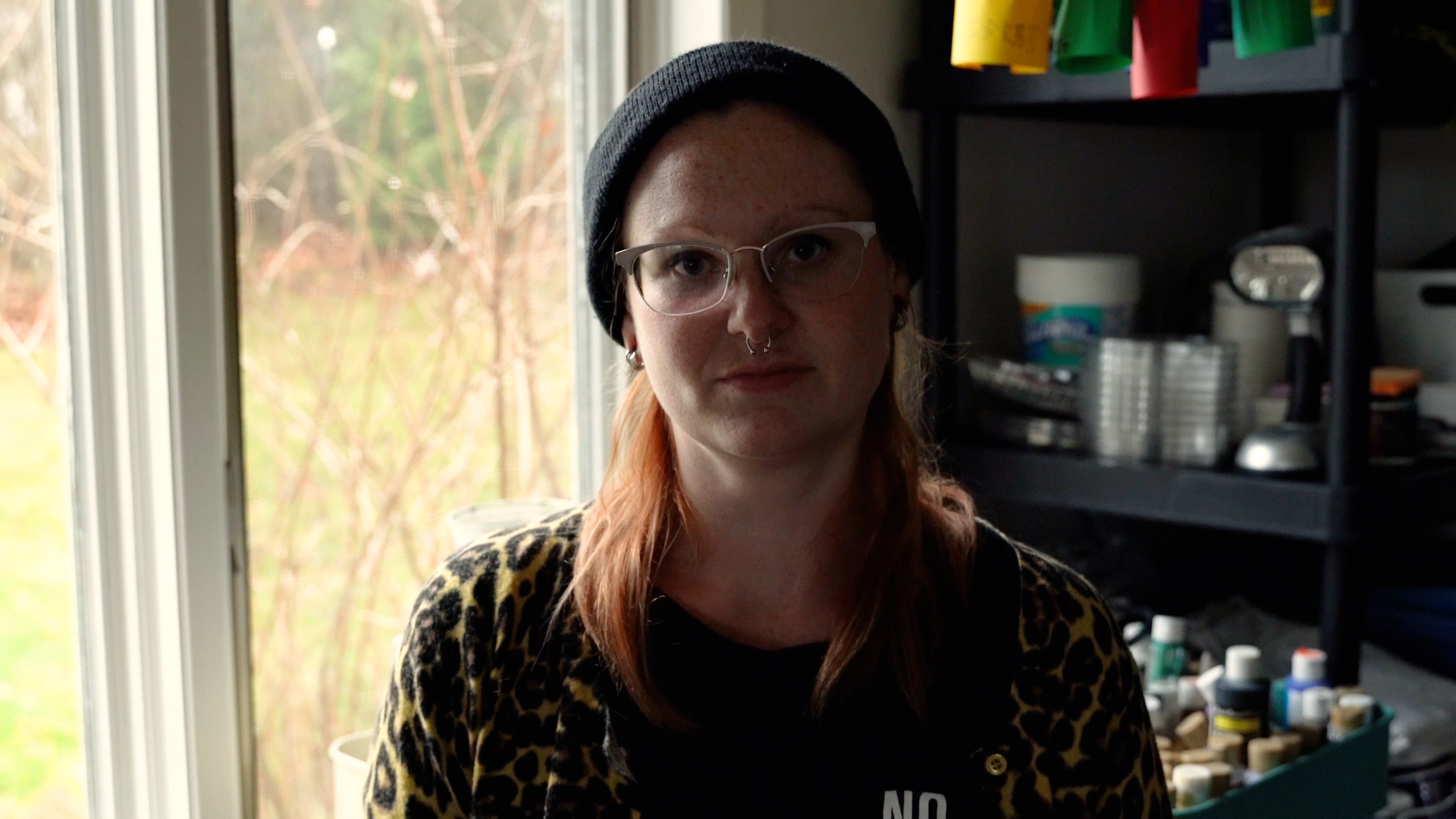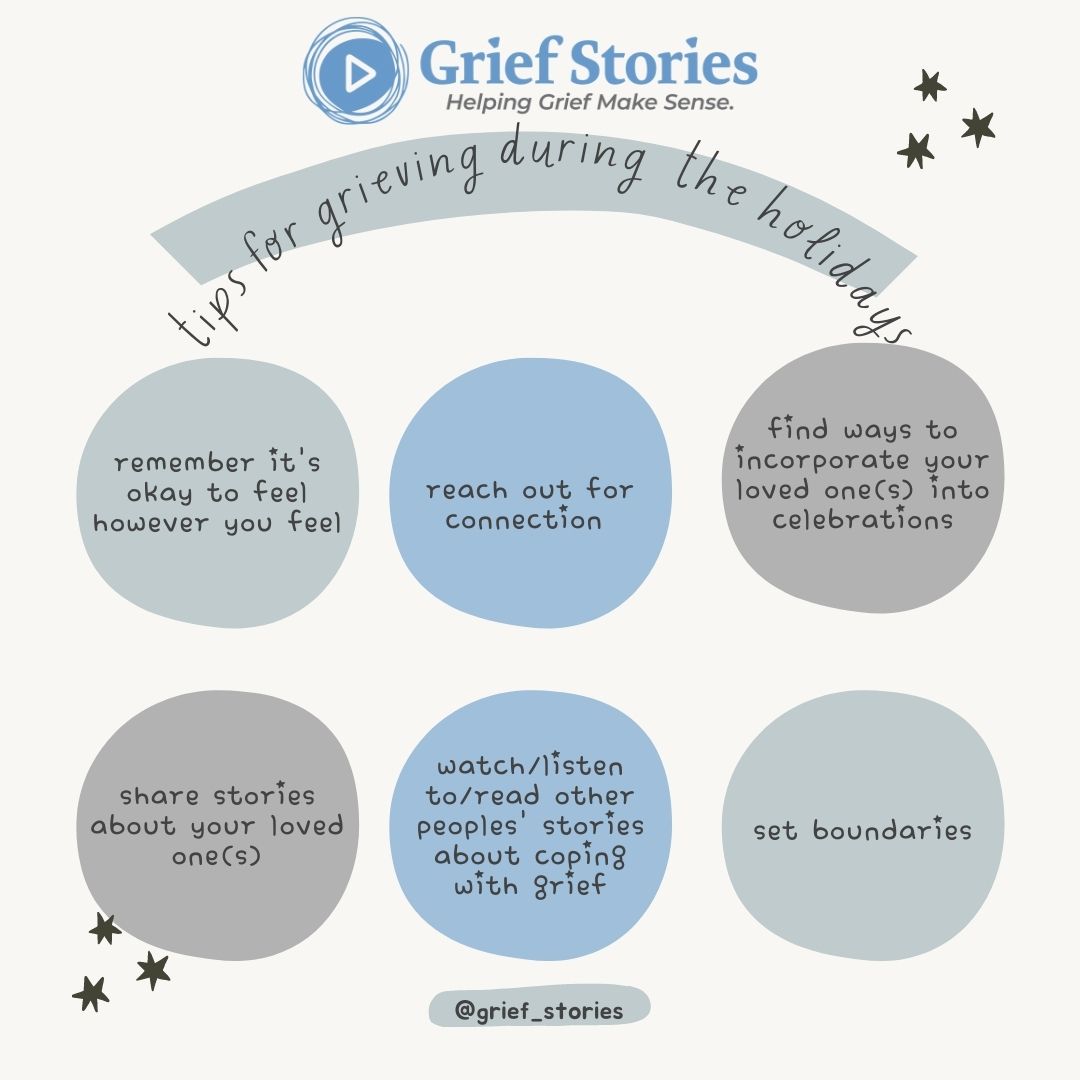Posts Tagged ‘Feelings’
Weaving the Tapestry of Love
Learning to become a better person is a wonderful consequence of being in a loving relationship with someone; you’re present in ways that help them grow into their best self. It’s an organic process you flow with on a journey we map out with intention, though in reality, it remains unknowable.
That is why a deeply loving relationship is like weaving a beautiful tapestry. You start with a blank canvas. With every experience a new thread is added—each a different color. The layers of time continue this process, including the good and troublesome of what life has to offer. The richness of color intensifies, fleshed out over the crucible of a relationship. In the end, if the kindness and beauty of love have been yours to share, you’ve woven a work of art.
My Uncle Sam had this type of relationship with his wife, Syl. Sam was remarkable for his easy-going nature. Syl, aka, “the little general,” was not even 5 feet tall, but formidable in demeanor. Sam and Syl had a long, happy marriage of 68 years.
When my uncle was 88, he began to develop some neurological symptoms. Medicine wasn’t working, so surgery was the next option. The day before surgery I was at the hospital. Sam was in good spirits; his usual affable self. I was in the room with just Syl and him. We talked about the upcoming surgery and then the conversation shifted: He said to Syl, “You know I love you” and remarked how beautiful she was. She laughed and rolled her eyes. Syl was being her usual self—a tough nut to crack. Sam was undeterred. He said he loved her now more than ever.
Sam continued to passionately express how much Syl meant to him. Syl smiled and her demeanor softened. I was so riveted by what my uncle was saying that I couldn’t tear myself away, even though it was such a personal moment between them. It was his love letter to her, and he was emphatic in wanting her to know.
After this intimate exchange, I immediately told my cousins about the amazing conversation between their parents. I was so grateful to have been present to bear witness and share the story. Sam spent the rest of the day alert and kibitzing with his family. When he came out of surgery the next day, he was in a coma and never regained consciousness. Sam died a month later. The words he uttered to his wife and family the day before his surgery were the last he ever spoke. Sometimes those who don’t have much time provide great gifts to the rest of us. Sam placed the final stroke on his masterpiece.
By Dr. Lisa Rosenberg
Dr. Lisa Rosenberg is a psychiatric healthcare professional, writer, and widow who never expected to navigate grief so intimately. When her husband, Jeff, died suddenly beside her in the night, she found herself confronting profound loss, love, and resilience—all of which she captures in her memoir, Adventure on Joyland Road and Other Stories of Love and Grief. With a career dedicated to understanding the human mind, Dr. Rosenberg blends deep psychological insight with personal storytelling to explore the lived experience of grief. Her writing is honest, humorous, and deeply compassionate, offering guidance to anyone who has lost someone they profoundly loved.
With a master’s in Psychiatric Nursing and a PhD in Educational Psychology, Dr. Rosenberg spent 30 years as a professor at Rush University College of Nursing in Chicago, retiring as Associate Dean Emeritus. Her career includes pioneering articles on humor in healthcare, extensive presentations, and, since 2017, senior consulting for the American Association of Colleges of Nursing. Based in the Chicago area, she writes, mentors, and consults, offering compassionate wisdom to those navigating grief.
You Can’t Always Get What You Want
“Happiness is a choice.” A friend of mine posted this quote on Facebook the other day. She then asked others what that quote meant to them. The responses were interesting and expected, and some were even inspiring. It’s so easy to say “I choose to be happy” when life is going well. On the other hand, when life has dealt you extremely difficult circumstances, like the loss of both of your parents and your spouse in a year, suddenly the choice requires a lot more effort.
I’m not saying it can’t be done. Some days I just really have to work at it. One of the things that made me the happiest in this world was my husband. I was madly in love with my Joe for all the days before he died, and I still am today. That is not a choice. It’s ingrained in me. His death didn’t lessen that love.
So, when someone says to me that I should “choose to be happy”, I hope they understand that it’s so much easier said than done. Choosing to be happy means choosing to enjoy this life without Joe. Enjoying this life without him means learning how to not feel guilty about that enjoyment. Not feeling guilty means choosing to let go. Even though I am still madly in love with my late husband, I am no longer married to him. Accepting that fact makes me sad.
Choosing to be happy is so hard when you are sad.
My friend was just asking for opinions, and in no way was her question directed at me. It just stirred up a lot of thoughts in my mind. The Rolling Stones were right, “You can’t always get what you want, but if you try sometimes, you just might find you get what you need.”
More than once in the last year someone has suggested that I should “choose to be happy”. If they read this, I hope they understand what it takes for a grieving person to do just that. And I hope they know that I am trying to find happiness amid the heartbreak every single day.
Preparing For and Coping with Special Days
Special Days can be days we have honoured with our loved ones that many others celebrate or more personal dates and milestones with your loved one. As these days approach, it can be difficult to figure out how to move through a Special Day. Do you do what you’ve always done? What do you do if you just want to ignore the day? Special Days can bring up a lot of different emotions, triggers, and opportunities to honour the person who has died.
Why Can Special Days Feel so Hard?
While we are grieving, it can feel as if our world has stopped while the rest of the world seems so happy and carry on as if nothing has happened. After the death of a loved one, there are other transitions and losses we can be grieving while we grieve the death. We may be letting go of old roles while taking on new roles in our family. There may be changes in our relationships and dynamics with others.
Planning Ahead Can Help Us Prepare
There’s no “right” way to feel as a Special Day approaches. You may dread the event, feel on edge, be angry at the number of store displays triggering your grief, or find yourself honouring your loved one and feeling joy.
Planning can help lower anxiety and can help us feel more prepared to cope. Grief can change from moment to moment. If your plans need to change the day of, that’s okay too.
Involve your support network that you usually spend this time with, including children, in conversations about what they would like to do. Everyone is impacted by grief, no matter their age, ability, gender, race, or other identities. You can find more information on grief and supporting grievers with intellectual disabilities here and a post about supporting grieving children here.
Taking Care of Yourselves Through and After Special Days
You may find that your grief is heavier in the lead-up to the Special Day, on the Special Day itself, or that you may experience a wave of grief in the day(s) afterwards.
Here are some gentle reminders:
- You may not be able to do all the things you have done or had planned to do, but be compassionate with yourself. You are allowed to set boundaries around your capacity so you can give yourself plenty of care and rest during this time.
- Grief can impact us mentally, emotionally, and physically. We can find ourselves exhausted in different ways, especially after going through heavy days. Check out our tips on the different ways we can give ourselves rest and care as we grieve here.
- This time of year can have us grievers feeling more overwhelmed or lonely at this time of year. If it feels right, think about it and reach out to people in your network you find supportive. Asking for specific support helps our loved ones give us what we need. The 3 H’s can help us name what type of support we may be needing:
- Heard: To feel listened to, validated, without judgement
- Help: Problem-solving, practical support like cooking, cleaning, childcare, etc.
- Hug: Sometimes we don’t need words of comfort, but a comforting touch like a hug.
- There is no right way to feel on a Special Day. You are allowed to experience moments of joy and lightness on these days while also missing your loved one.
____________________________________________________________________________________
Jessica Milette, MSW, RSW. Grief Stories Healthcare Consultant
Jessica is a registered social worker and owner and of Cultivating Connections. Her expertise includes helping individuals and families facing anticipatory grief, ambiguous loss, disenfranchised losses, and sudden deaths. Jessica believes in the power of connection; within ourselves, with those who have died, those we are in relationship with, and with our greater communities. Through sharing our stories of grief and loss, we tend to our connection with those who have died and creating connections with others.
Jessica is a white woman living on the traditional territory of the Anishnabek, the Haudenosaunee, the Attiwonderonk, and the Mississaugas of the Credit peoples, also known as Guelph, ON.
Finding Joy During the Holidays After Loss When Everything Feels Awful: A message of hope.
My mother died in the middle of the night on January 1, four days before I turned sixteen. I don’t remember much about Christmas the couple weeks before she died, just that we spent a lot of that season in the ICU of the hospital where my mother had birthed my brother and I. For a decade after she died, I hated Christmas. Everything filled me with dread and heaviness. The lights, decorations, and music made my skin crawl- and they were inescapable. At the grocery store, at work, looking out my apartment window onto the main street of a small town. The traditions my family had grown up with weren’t things we did anymore. The holidays weren’t joyful, connective, or fun.
Now, I am thirty-three and the mother of two little humans. I have officially crossed the threshold of being alive longer without my mother than with her. My motherhood has come with many gifts and one of them has been finding joy during the holidays again. I’m writing this cozied in a bright red snoopy sweater that says “merry”. My partner and brother have matching ones. My older kid told me he wants to decorate our house with rainbow-coloured lights, so I bought a strand to hang on the weekend and a small wreath with red berries that reminded me of my mother. I hung the wreath on my front door and thought about how she probably would have hung the lights with my son the same day he had the idea if she were alive.
Last month, my cousin got married and had set up a table of pictures of family members who had died so they could be part of the big day. My beautiful mother was there, smiling brightly out of the frame. My kid noticed it, we have the same picture of her on our fridge. “It’s your mama! She died. We could bring her back and visit her at her house,” said my sweet four-year old. I remind him that death doesn’t work that way, but she lives in our hearts. The next day, he brought her up again and I told him a story about her. It doesn’t feel heavy, even though I still miss her. I feel grateful to feel her presence in our lives. Grief, though still present, changes over time.
If you are someone who is grieving during the holidays and can relate to the first part of my story, I want you to know that it might not feel that way forever. I also want you to know it’s okay to feel however you’re feeling- there are no rules in grief. Here are a few things I’ve learned about grief and the holidays:
Sometimes it can help to make new traditions.
When my older kid was old enough to enjoy Christmas for the first time, I asked my partner, my brother, and other family members if they had any traditions they wanted to start incorporating into the season. We’re still working on building these traditions with my kids, but things like Christmas Eve dinner with my aunt and uncle, Christmas morning with my dad, not wrapping Santa gifts, baking cookies, and hanging rainbow-coloured lights are all slowly becoming ways to find joy, intentionally, together.
- Don’t overextend yourself.
If you don’t want to participate in every (or any) holiday activity- don’t! I didn’t decorate for years, I still avoid malls between November 15-January 1, and there have been some years where I intentionally scheduled work things so I didn’t have to participate at all. It’s okay to be gentle with yourself when it comes to participating in holiday-related things while you’re grieving.
3. Giving can be healing.
I do a lot of my planned giving to charity during the holiday season. I use affiliate programs connected to a breastfeeding support organization I’m passionate about to buy gifts for family and friends, I make donations to organizations that are important to loved ones in their names, and I give to grief resources and hospices as I can. Knowing I am helping other people during a season that has traditionally been hard for me helps me feel connected and supports my continuous healing.
If you find support through the resources we create at Grief Stories, please consider helping us reach our fundraising goal this holiday season so we can continue to produce and distribute free grief resources. Giving is grief support. You can donate here.
___________________________________________________________________________________________
Alyssa Warmland is an interdisciplinary artist and activist. Her work utilizes elements of radical vulnerability, restorative justice, mindfulness, compassion, performance, and direct action.
She is a mother, La Leche League Leader, Board member of La Leche League Canada, writer, podcaster, producer, director, performer, content creator, not-for-profit administrator, and abstract visual artist. Lyss is a strong advocate for fumbling towards an ethic of care, especially when it comes to the topics of birth, matresence, and grief. Most of all, she’s interested in the way people choose to tell their stories and how that keeps them well.
Creating Mother’s Day Traditions as a member of the Dead Mom Club
About a week after Easter this year, I noticed I was starting to feel off. My sleep wasn’t as restful, experiencing tension in my body, at times I was getting irritated with the simplest things. Then while streaming an episode of television, 4 ads back to back all talking about Mother’s Day. Then came the promotional emails, the store displays, and even a banner at the top of my Microsoft Word app directing users to their Mother’s Day templates.
Each year, my relationship with Mother’s Day has changed and it will likely continue to transform for the rest of my life. Early in my grief, I avoided any reminders. It was so difficult to work my part-time job in high school with Mother’s Day displays all around me, hearing about patrons’ plans, and then being asked how my own family would celebrate. I would feel my grief weigh heavily on my body, wanting to sleep until June 1st if I could. My first few Mother’s Days were about survival mode, and getting through my waves of grief.

Photo of Jessica and her mother, facing the camera and smiling.
I’m not crushed by my Mother’s Day grief these days in the same way, but I know it is a time of year for me when my grief can show up more. Thoughts about what she would think about streaming platforms; the things I want to tell her; the things I want to thank her for. As my grief has changed these past 18 years, I’ve written letters to my mom, worn pieces of her jewelry, visited her gravesite, bought and written a Mother’s Day card she would have liked, and made some of my favourite childhood recipes of hers.
I would spend many of my Mother’s Days with my grandmother, my mom’s mom as I knew that day held its difficulties for her too. As my grandmother’s health declined over the pandemic, I wasn’t always able or allowed to visit with restrictions. After she died in 2021, I was in a fog by the time Mother’s Day 2022 came around. It felt surreal to me, that on my mother’s side – there are no longer any living maternal presences in my life.

Photo of Jessica wearing a blue satin dress and her mother wearing a long black and
white floral jacket , holding hands as if they are dancing for the camera.
Last year, a friend and another member of the Dead Mom Club were talking about how much this time of year can impact us. These conversations led to something surprising, and beautiful, but also a new tradition that I look forward to engaging in this year. Last Mother’s Day, we had dinner at a nice restaurant downtown, dressed up, and spent an evening talking about our moms. I wore a skirt that belonged to my grandmother and some jewelry that belonged to my mom. My friend also shared items they were wearing or keeping with them that reminded them of their mom. We laughed, we cried, we hugged. It was so cathartic to talk about the things some of our other friends couldn’t quite understand. At times dreading that 2nd Sunday in May, I now know that I can hold space for the difficult emotions that may arise and that I can also look forward to it. To look forward to having dinner with a dear friend, to holding space for the joy, love, and grief we have for our moms, to feel a little less alone on a day that can feel isolating as the rest of the world celebrates it.
_____________________________________________________________________________________________
By Jessica Milette, MSW, RSW . Grief Stories Healthcare Consultant
Jessica is a registered social worker and owner and of Cultivating Connections. Her expertise includes helping individuals and families facing anticipatory grief, ambiguous loss, disenfranchised losses, and sudden deaths. Jessica believes in the power of connection; within ourselves, with those who have died, those we are in relationship with, and with our greater communities. Through sharing our stories of grief and loss, we tend to our connection with those who have died and creating connections with others.
Jessica is a white woman living on the traditional territory of the Anishnabek, the Haudenosaunee, the Attiwonderonk, and the Mississaugas of the Credit peoples, also known as Guelph, ON.
Lyss – Writing Songs and Words
Lyss – Writing Songs and Words
Lyss shares about how writing songs and words has helped her with intense feelings
Lyss – Music
Lyss – Music
Lyss remembers playing music for her mother as she was dying and how music has helped with feelings.
Tips for Grieving During the Holidays
By Alyssa Warmland
The holidays can bring up a lot of feelings, especially when you’re grieving the loss of a loved one. Whether it’s the first holiday season without someone, the holidays mark a time where someone you love died, or it’s just hard to be around celebration when you’re not feeling celebratory, December can feel heavy.
These are a few tips for grieving during the holidays:
Remind yourself that it’s okay to feel however you feel.
Feeling sad or mad? Feeling happy- and guilty for not feeling worse? Whatever comes up for you is normal. It’s okay to sit with your feelings, to give them some space when it feels right, and also to compartmentalize them if you feel like that’s best in the moment. You can acknowledge your feelings, put them in your pocket, and hold on to them during the family dinner if you want to. You can take them out of your pocket and spend time with them later. Grief is unique, and can show up in unexpected ways. It’s okay to feel however you feel.
Reach out for connection.
Sometimes we worry that we’ll make someone else upset if we mention our grief, or if we show up in a way that isn’t particularly festive. The truth is, the people who care about us want to hold space for us, even when we’re grieving. Connection can help us feel better.
Find ways to incorporate your loved one(s) into celebrations.
Did your dad have a favourite side dish your family always served at dinner? Did Oma make sugar cookies every year? Did your sister always compliment you when you wore red? Consider serving dad’s dish, or baking Oma’s cookies, or wearing red.
Share stories about your loved ones.
Sometimes it can be tempting to pretend the people we love haven’t died. As if, by not talking about them, we can pretend they’re still around. In fact, sharing stories about them can help honour them and to feel their presence. Remembering our loved ones out loud in connection with other people can feel healing.
Watch/listen/read other peoples’ stories and insights about grief.
At griefstories.org , we host stories and insights from people with lived experience in grief, as well as healthcare professionals’ insights on grief. These videos, podcasts, and blog posts are available for free 24/7, anywhere you can access the internet. Our hope is that this content may help you feel less alone.
Set boundaries.
Listen to how your body feels. You don’t have to do anything you don’t want to do. You are safe and you are worthy of operating with integrity toward yourself. Grief can be hard, and it’s okay to be gentle with yourself as you move in and through it – even during the holidays. Set whatever boundaries feel right for you. There are no rules here. You’ve got this.
Grief and Disability: Carrie’s Story
By Carrie Batt, Grief Educator
My son says I am a mover and a shaker. He tells his friends that because of my extensive travels abroad and my volunteering. When his friends ask: “Why did she do that?” he always tells them “Because my mom believes that ‘anything is possible’.” As I look back on my journey, I know where I picked up this motto. When my baby brother was born, the doctors told my parents: “he will not walk, talk, nor know who you are”. From that day on my parents embodied that motto ‘anything is possible’ and in the end my brother does far more than walk and talk. This circumstance introduced me to the disability community knowing that people with disabilities deserve and can do more. Interestingly, I have had the privilege of working within the developmental sector in a variety of positions for more than thirty years.
In 2018, I added to my parents’ motto ‘anything is possible’ and included ‘everyone is worth it’. I added those words to the motto right after I had attended a kintsugi workshop offered by Rami Shami, a prominent member within the deathcare community. As soon as I realized that Rami had spent the last 30 years caring for the dying. I inquired about his experience in death, dying and disability. Rami unfortunately, had no experience in supporting people with a disability who were dying. Upon learning about the sheer lack of support and expertise on this topic, I proceeded to complete the end-of-life training with Beyond Yonder Community Deathcare program. Soon after, SEOL Care was created, which offers a disability-sensitive approach to death, dying, and disability.
It has become clear to me over time that we have much work to do to ensure the delivery of disability-sensitive grief literacy and grief support. In March of 2022 my proposal for four 1-hour sessions was approved, we provided the program for 20 participants. My heart was full in each session.
My heart remains full of hope that conversations, education, and expertise about disability sensitive end of life care and grief support will gain momentum as more and more people join in on this vital conversation.
Currently, there are several rays of hope that suggest grief education and support can and will be offered in a more inclusive way. As a certified grief educator, I now offer online disability-sensitive grief support services for individuals and groups. My employer is offering disability-sensitive grief literacy sessions. The Bereavement Ontario Network has shared information through their newsletter and in a network webinar, where the gentleman I support and I were the guest speakers. Bereaved Families of Ontario have been receiving multiple requests to provide grief resources for the neurodivergent community. Additionally, Bereaved Families of Ontario are seeking out speakers with lived experience related to grief and under-represented communities for their grief literacy series. I remain grateful knowing that these are hopeful times, and these examples are a positive step in the right direction.
Birthdays, Anniversaries, and Other Special Days
Rachel Herrington – Social Service Worker Graduate, Third Year Psychology Student, Equal Rights and Community Advocate
It has been 10 years since my grandmother passed away and it never fails, every year leading up to her birthday I spend weeks with a pit of sadness and remorse in my stomach. I spend my days feeling this way and not understanding why then something makes the date catch my eye and it hits – It’s her birthday.
When we are grieving, some days are more difficult than others. Grief comes in waves like the sea and can feel like an intertwining labyrinth of emotions. Birthdays, anniversaries, and special dates that are associated with our loved one who has died can contribute to more emotionally intense days which can be worsened through the anticipation and “what ifs” of the upcoming day. These difficult days can leave us feeling defeated and it can almost feel like we’ve taken two steps backward in our grieving process, but grief does not have a timeline, and these feelings of setbacks are opportunities for healing.
Before the Day:
Communicate and set boundaries with others – think about how you want to approach the day and share your wants, needs, and desires with others. Clearly communicating your wants and needs with others will allow the opportunity for you to set the expectation for the day which can help relieve the intense feelings of anticipation.
Remember there is no right or wrong way to celebrate special days – It is important to remember that there is no right or wrong way to grieve and there is no written code or rule on how these special days are to be approached. However you decide to approach the day is the right way.
On the Day:
Allow yourself the opportunity for space from others – it is important to allow there to be an opportunity for you to step away and have a safe space to feel your emotions if you need to. If you are attending someone else’s home for the occasion plan a way that you can step away or leave with ease if you need to.
Find something that grounds you when intense emotions arise – if intense emotions are arising it can be helpful to find something to help ground you in the moment. This could be a physical item such as a small trinket in your pocket that you can hold, squeeze, and focus on in your hand, or it can be through positive mental imagery, deep breathing, and/or stress relieving acupressure, etc.
Take deep breaths – practicing deep breathing can help reduce stress and can increase resiliency during highly emotional or stressful situations.
If things don’t go as planned, that is okay – grief is a process with no timelines or set of rules, and sometimes things do not always go the way we plan and that is okay. Allow yourself time, patience, and understanding while you adapt to living with your unique grief experience.
Weathering the Intense Emotions of Grief
Post by Maureen Pollard, MSW, RSW
Grief often comes with powerful, unpredictable emotional shifts that can be painful to experience. While it’s important to find ways to sit with these feelings, to acknowledge the pain of grief and accept loss, it’s also necessary to find ways to ease and manage the pain. There are several simple activities that you can explore to help.
Ground Yourself in the Present
Use your senses to remind you that you are safe, here and now. When we are feeling intense emotions we are often caught reliving a moment in the past, or we are fretting over some anticipated event in the future. We can’t undo the past and we can’t control the future, which only intensifies these difficult feelings. When you use your senses, it pauses your racing thoughts and can help calm the turbulent feelings.
Notice the things in your environment you can see. Count the number of items that begin with the letter A, then the letter B, or count the number of green things.
Notice what you feel around your body. Sense the ground under your feet, the chair under your bottom, the clothes against your skin, the sun on your cheeks, or the breeze in your hair.
Notice what you hear. Voices. Background noises of the building such as the furnace or a fan or the hum of fluorescent lights. Music. Nature sounds.
Notice what you smell. Is the air stale or fresh? Is there some overpowering smell, or not much smell at all?
Notice if you have a taste in your mouth. Is it the sweetness or savoury taste of something you just ate, the minty freshness of toothpaste or gum, or perhaps the sour taste of morning breath.
Breathe.
A deep slow breath can activate the calming centre of our nervous system. When you breathe deeply and exhale slowly, you set off a cascade of calming chemicals in your brain that help ease tension and stress.
Try 4-7-8 breathing. Inhale as you count to four. Hold your breath for a count of seven. Exhale as you count to eight. Repeating this breath three times takes less than one minute, and when you practice it often you develop a muscle memory that helps you access this deep, slow breath during times of strife.
Indulge in Self Care
Enjoy a cup of your favourite herbal tea or soup. Take a hot bath, perhaps adding Epsom salts. Or a shower with your favourite body wash. The warmth and scent of these activities will work together to activate the same calming centre in your nervous system that is affected by deep, slow breathing.
Plan Intentional Change
Sometimes our routines cue us to experience distressing memories and disturbing thoughts and feelings. When this is the case, it can help to examine your schedule and activities. What seems to upset you? Is there a way to pause the activity or shift it to another time of day to try to break the connection with the difficult experience?
It’s true that we can’t help our thoughts and feelings. It’s also true that we can develop responses to the experience of intense grief that help us feel more in control as we heal.
Helping Others Help You Through Grief
Post by Maureen Pollard, MSW, RSW
When you’ve experienced the death of a loved one, one of the most difficult things you will go through is trying to find out what helps you adjust to the loss. This can be compounded when others around you don’t understand what you’re going through, and don’t know how to help you. Although you may not have much energy, and you may be reluctant to become a teacher, it may be just what your family and friends need to help you through your grief.
The concept of “pocket phrases” can be quite useful in helping others learn what you need as you grieve. These are statements that you practice ahead of time so that they come to you effortlessly in the moments when you are upset but still need to ask for someone’s help or understanding.
“That’s not helpful.” Usually, our friends and family are trying to help, however their actions may have the opposite effect. With practice, you can develop the ability to say this in a calm, confident voice that halts comments or behaviour that you find hurtful.
“Grief isn’t easy, but it is necessary.” Well-meaning people sometimes want us to move through grief quickly when that is just not possible. You can remind them that it’s normal to feel a full range of feelings after a loss and you don’t need to ‘cheer up’.
“I’m adapting. It takes time to adjust.” When someone in your circle of acquaintances asks how you’re doing, you can use this phrase to remind them that grief is a process. You can ask them directly to have patience with your intense feelings, the changes in your routines and at the same time let them know you’ll never be quite the same again.
“I’m not strong. I’m just doing what I must.” This phrase can be helpful when people praise your ability to function in routine tasks and situations. You may want them to understand that although you may look well on the outside, there’s still a whirlwind of emotion and distress raging unpredictably inside you.
“I like it when you say their name and we talk about them.” You can let people know they don’t have to be afraid to mention your loved one. If you want to share stories, and hear stories from others, you may need to give permission with a clear, direct statement such as this so that people aren’t afraid they will hurt you more by talking about them.
These sample statements can be a good starting point for developing your own useful “pocket phrases” to help teach the people in your life how to help you as you grieve. Remember that the more you practice the things you wish you could say, the easier it will become to pull them out in a peaceful and positive way when needed.












